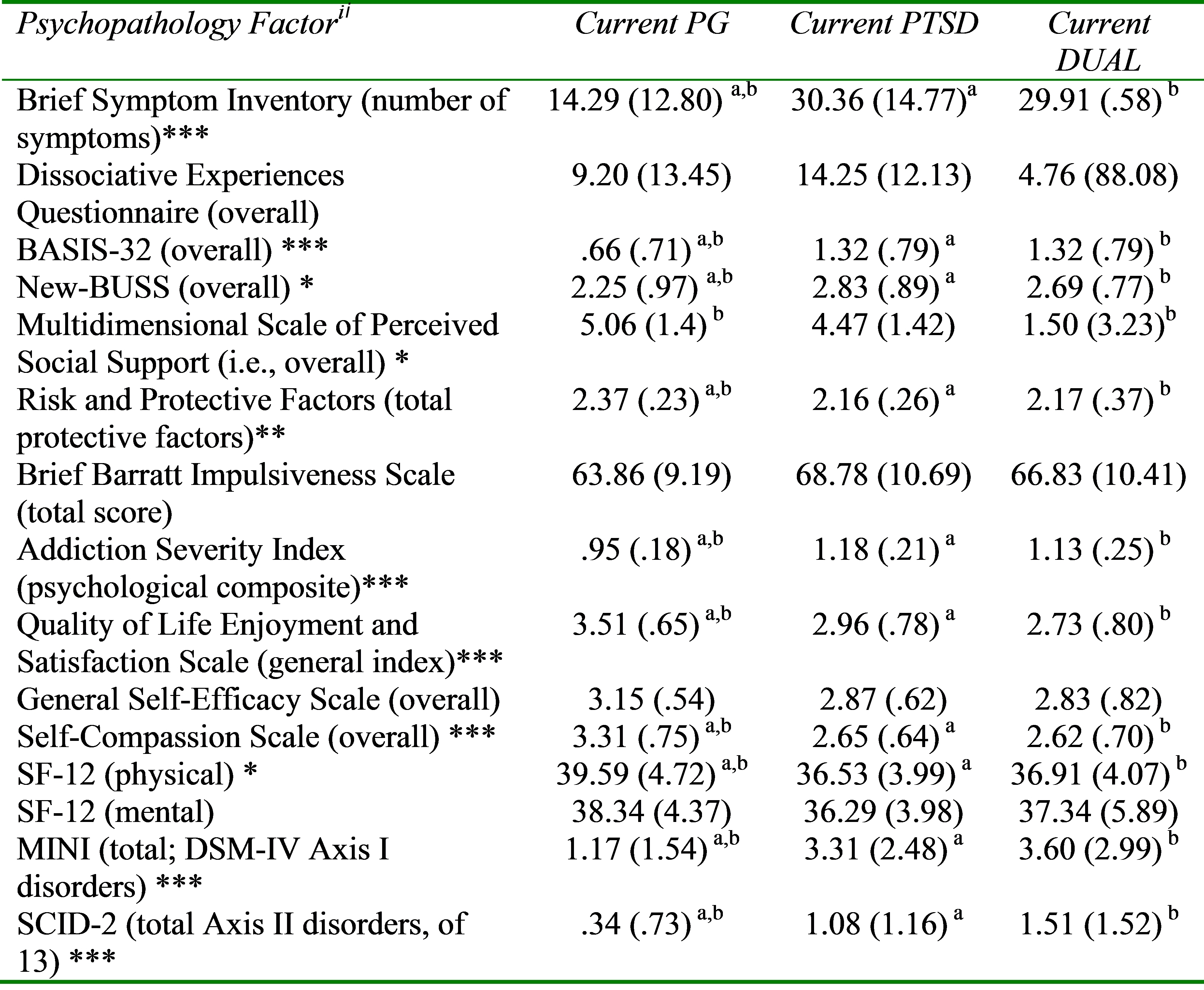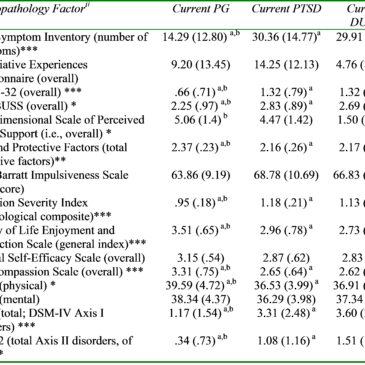Few people suffer only from pathological gambling (PG): most people also have some other co-occurring disorder that often preceded the onset of PG (Kessler et al., 2008). However, few studies have examined health profile differences between singly and doubly diagnosed individuals. This week, the WAGER reviews a recent study that examined individuals currently suffering with PG, or Post Traumatic Stress Disorder (PTSD), or both disorders (Najavits Meyer, Johnson, & Korn, Online First).
Method
- The researchers used advertising, online postings, and local fliers, as well as outreach at treatment centers, to recruit 106 (36 current PTSD; 35 current PG; 35 dually diagnosed (DUAL)) individuals who were 18 or older for the study.
- Research participants completed surveys and assessments designed to provide a comprehensive and reliable profile of their sociodemographic and psychopathology history, with a special emphasis on gambling and trauma/PTSD history.
Results
- Table 1 provides a summary of selectedi pairwise post–hoc test differences of significant one-way omnibus ANOVAs (or Chi Square, as appropriate) comparing psychopathology factors across health status (i.e., current PTSD, current PG, or DUAL).
- For most factors’ summary scores and subscales (not shown), the current PG group had significantly healthier scores than the current PTSD and current DUAL group; however, there were few differences between the current PTSD group and current DUAL group.
Table 1. Psychopathology summary by health status

Note: For the omnibus F tests (or Chi-square), *=p<.05; **=p<.01; and, ***p<.001. For the pairwise comparisons, “a” indicates PG is significantly different from PTSD; “b” indicates PG is significantly different from DUAL; and, “c” indicates PTSD is significantly different from DUAL.
Limitations
- When the researchers controlled for social desirability differences, some variables were no longer significantly different across groups.
- It is unclear whether the researchers maintained protection against findings by chance given the large number of statistical tests by using a Bonferroni correction, or some similar technique.
Conclusions
PTSD can be a debilitating mental health disorder that complicates PG. Individuals who only have current PG are, in many ways, healthier than those with PTSD, or a PG/PTSD dual diagnosis. However, there are few differences between those with PTSD and a PG/PTSD dual diagnosis. Therefore, it is possible that it is PTSD, and not the experience of a PG/PTSD dual diagnosis, that places people at-risk for more psychopathological complications.
-Debi LaPlante
What do you think? Please use the comment link below to provide feedback on this article.
References
Kessler, R. C., Hwang, I., LaBrie, R. A., Petukhova, M., Sampson, N. A., Winters, K. C., Shaffer, H. J. (2008). DSM-IV Pathological gambling in the National Comorbidity Survey Replication. Psychological Medicine, 38(9), 1351-1360.
Najavits, L.M., Meyer, T. Johnson, K. M., & Korn, D. (Online First 29, December 2010). Pathological Gambling and Posttraumatic Stress Disorder: A Study of the Co-Morbidity versus Each Alone. Journal of Gambling Studies.
_____________________
i Due to the large number of reported results, we have selected to report summary variables, when available, for the various psychopathological assessments.
ii Results not reported for Coping Skills Inventory. No assessment summary variable was available and no reliable between group differences were evident.




